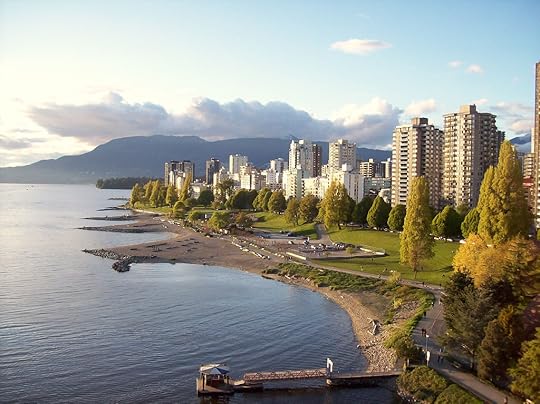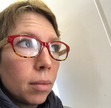Looking forward to AAA 2019 in Vancouver
 Next week I’ll be attending the American Anthropological Association convention in Vancouver, where I’ll be chairing and presenting on a panel called, “New Perspectives on Adult Language Socialization,” organized by Kathryn Mara. If you’ll be there, you can find us on Friday, 22 November, 8:00 AM – 9:45 AM (so early!), in Vancouver Convention Center WEST | Ballroom B | West Level 1. I’m especially proud to be joined not only Kathryn, one of my current graduate students, but also my former student, Dr. Kazeem Sanuth. The esteemed language socialization scholar Patsy Duff will be our discussant.
Next week I’ll be attending the American Anthropological Association convention in Vancouver, where I’ll be chairing and presenting on a panel called, “New Perspectives on Adult Language Socialization,” organized by Kathryn Mara. If you’ll be there, you can find us on Friday, 22 November, 8:00 AM – 9:45 AM (so early!), in Vancouver Convention Center WEST | Ballroom B | West Level 1. I’m especially proud to be joined not only Kathryn, one of my current graduate students, but also my former student, Dr. Kazeem Sanuth. The esteemed language socialization scholar Patsy Duff will be our discussant.
My paper is titled, “Queering Language Socialization: Fostering Progressive Muslim Interpretations through Talk-in-Interaction.” How do Muslims in progressive Muslim communities of practice socialize newcomers into “queer” ways of practicing and talking about Islam? I address this question through a multi-sited ethnography of progressive Muslim face-to-face and online groups (mainly in North America), including both participant observation and ethnographic interviews. In mainstream approaches to Islam, homosexuality is considered forbidden, yet there have always been sexually and gender diverse Muslims (Kugle 2010; Hamzić 2016). Discussing child language acquisition, Barrett (1997, 191) argues that “queer language is probably highly divergent from the language we are socialized into using,” yet little work has examined how queer communities might socialize one another through or into queer language as adults. Ethnographic work on the language use of sexually and gender diverse Muslims, though limited, has demonstrated that such communities do develop unique ways of talking both about their subjectivities and about Islam (e.g. Gaudio 2009). Over the last decade, an increasing number of progressive Muslim groups and congregations have formed throughout the world, communities of practice in which sexually and gender diverse Muslims are fully included. A language socialization approach enables us to see how participants in such groups talk about Islam and teach others to do so in ways that resist homophobic interpretations, creating a welcoming environment for not only sexually and gender diverse Muslims but for a variety of minoritized subjectivities. In this context, we see that even resistance involves socialization.
You can access my slides and some notes in advance, or afterward, through Google Drive.
See you in Vancouver?



